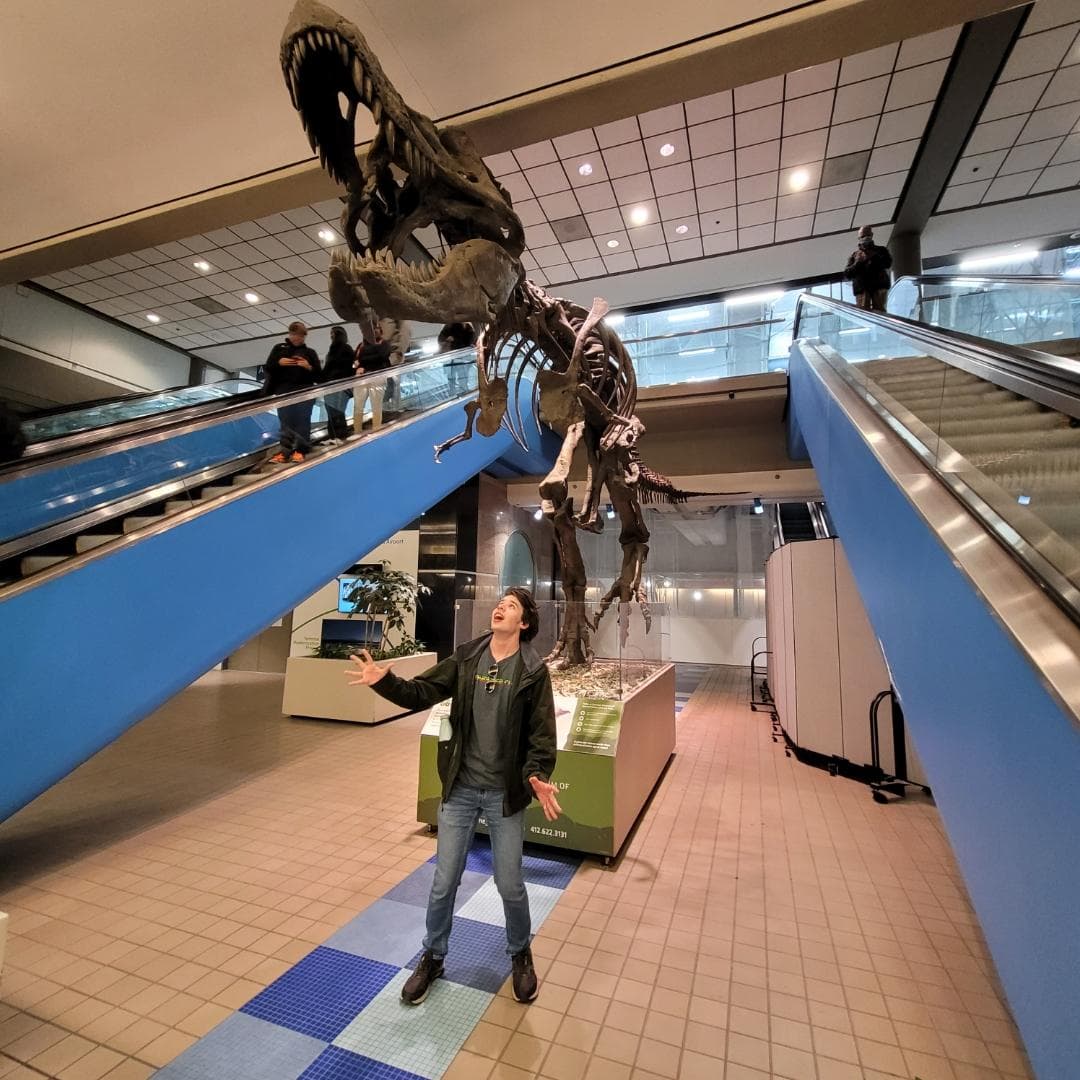When his plane touched down in Pittsburg, Pennsylvania, TLU senior Will Follis didn’t know exactly what to expect. It had been a long day in the air, with a layover in Orlando, and Follis isn’t one to sit still for too many hours in a row. But his first impression of the City of Bridges was a good one: He was greeted by a dinosaur in the airport—dinosaur skeleton, technically—which as it turned out, was a teaser for an exhibit, sponsored by the Carnegie Museum. “It sort of brought out the kid in me after having to sit still for the whole day,” says Follis, who’s been fascinated with natural history and paleontology since childhood. “It's hard to believe that these incredible animals used to live in this world, and in the very state I call home.”
He and advisor Dr. Ridwan Noel, assistant professor of computer science at TLU, had made the trip to attend the National Conference of Undergraduate Research (NCUR), which is hosted by a different university every year and is known as the largest symposium of its kind. Follis had presented his research before, of course, but never in such a huge venue, to such a large audience.
This year, Duquesne University and the Pittsburg Council on Higher Education, along with the Council on Undergraduate Research (CUR), were playing host to more than 4,000 students from across the nation and around the world, and Follis was there to share the research he worked on last summer, which culminated in a project entitled Evaluating Bias and User Perceptions of Generative AI Chatbots at a Liberal Arts College.
Follis has been interested in AI (Artificial Intelligence) for years, and enjoyed delving deeper and coming to understand how it is perceived by others. “AI, especially generative AI, is a such a hot topic of discussion for its use among students and its energy consumption. I wanted to see how the student body of TLU perceived it and I would love to perform this survey again at a larger school,” says Follis.
Follis’s few days in Pennsylvania turned out to be well worth the trip. “NCUR allowed me to showcase the summer research I worked on with Dr. Noel and my fellow students Valen Poyner and Chris Deets,” he says. “I also got to meet student researchers from across the country from several different fields. I got to learn a lot and make new connections in this amazing community of students.”

Noel believes in the value of expanding his students’ horizons through experiences like NCUR. “I am pleased that Will was able to participate in the National Conference on Undergraduate Research,” he says. “This conference offers an exceptional opportunity for students to present their scholarly work on a national platform, engage with a broader academic community, and further develop their skills as emerging researchers. Opportunities like this also allow TLU to be represented on a national stage, and greater participation across all disciplines should be actively encouraged."
As for Follis, it’s almost time to head off on his next adventure. He’ll walk the stage at graduation in May, degree in computer science in hand. He’s already explored a few possibilities for next steps. Grad school may eventually be in the cards—he’s even considering the idea of teaching at the college level someday. But his immediate plans are a bit closer to home, as he plans on staying in the area to begin his career. And eventually: “I would love to work more with AI and the ethics of its use,” he says. He also plans to earn his certification in prompt engineering over the summer. Prompt engineering involves crafting prompts that essentially train generative AI models to produce quality outputs. And after that, who knows? Follis is just getting started with his research in the field and is interested to see where it will take him. “I'll always be on the lookout for the next chapter.”
